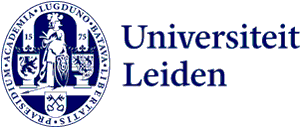
Leiden Law School receives praise during research evaluation
Every six years, the research conducted at all law schools in the Netherlands is evaluated during a research evaluation. On 6 and 7 October, it was Leiden University’s turn to be evaluated. The aim of this ‘site visit’ is to allow the committee to get an idea of the faculty research climate, the research policy, the PhD programme, and the results that have been obtained over the last few years.
These topics were discussed with the committee during panel discussions with the coordinators of the research programmes, the members of the research support staff, and the Faculty Board. The committee also interviewed PhD candidates and senior researchers.
Initial findings
At the end of the visit, the committee presented their initial findings. The Faculty received praise for certain aspects of its research, such as the innovative, interdisciplinary research that is taking place at the Faculty, and the successful PhD policy. The committee was also impressed with the enthusiasm of the faculty employees and the open culture within the Faculty. People are given the space and freedom to enjoy and make the most of their research. At the same time, the committee also saw room for improvement or revaluation of parts of the research policy. They specifically mentioned the administrative management of the faculty research and the research structure, which the committee felt was complicated, as well as the RAF standard.
'Not a walk in the park'
Vice Dean and Director Research Stefaan van den Bogaert on the site visit: ‘A research evaluation is a big operation. This is definitely not a walk in the (Van der Werff) park. The importance should not be underestimated either, especially the effect it can have on the Faculty’s reputation. You hope to do well, especially because all eyes are on you. After all, Leiden has a certain reputation to uphold. I would like to thank everyone at Meijers, the research administration, the Faculty Board as well as all the other employees that were involved with the site visit on 6 and 7 October for all their efforts. I think that working together we succeeded in providing the committee with a clear picture of what it is like to work and conduct research at the Faculty. I really believe that we should all be very proud of the research that has been conducted at the Faculty over the last six years. During COVID, circumstances were often also very complicated! We feel confident about the outcome of the final report. And following that, we will start working with renewed vigour to put all the recommendations into practice.'
More information
Are you interested in the research that has been conducted at the Faculty over the past six year and the wonderful results that have been obtained? We have created a video with a summary of all research conducted at the Faculty:
Leiden Law School – Our research: 2016 – 2021
Due to the selected cookie settings, we cannot show this video here.
Watch the video on the original website orThe six-yearly research evaluations of the Dutch law schools are conducted based on the national protocol, the Strategie Evaluatie Protocol 2021 – 2027 (SEP). This is an overview of the criteria that should be used to evaluate the research of the different faculties. In the past, there were three: quality, social impact, and viability. The current SEP has included another four evaluation criteria: Open Science, PhD policy and supervision, academic culture, and talent policy and diversity.
Dutch law schools have agreed that the research evaluations for this round to be held on faculty level, in contrast with the evaluations in 2016 that were held on a research programme level. The visitation and the evaluation are executed by an external visitation committee comprised of legal experts from universities in the Netherlands and abroad. Because the visitation was held on a faculty level, this visitation predominantly focussed on the general research policy of the Faculty, with special attention for the criteria, as mentioned above, from the SEP.
